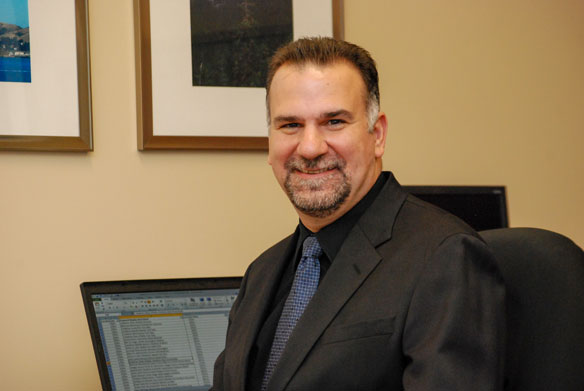
Balancing the positive, with the realistic
How are things, these days? It’s not a simple question

BOB MOWAT
Over the years, I’ve had conversations – face-to-face, by phone and email – with Richard Vanderlubbe and I’ve always found that he’s a good person to talk to during times of crisis.
He always seems to find the balance between the need to be positive, while recognizing that ignoring the realities of a situation is a dangerous path to tread.
Lately, I’ve been wondering where that reality is for the travel industry here in Canada, so I figured it was time to ask Vanderlubbe, president of tripcentral.ca, a simple question:
How are things going these days?
“Very, very, very quiet,” Vanderlubbe’s told me, adding: “I think Canadians – including those in the affected travel industry – are enjoying the last gasp of summer.”
He pointed out that: “We spent the last few months sorting out credits, refunds, insurance claims and customer service files. There’s been a bit of cancel/rebook. We built a tracking system for credits and I would say that 3% to 4% of ITC sun package customers have rebooked, and maybe 10% to 15% of cruise.”
Tied to the USA
However, he cautioned: “There is little tolerance by consumers for travel advertising right now.”
He continued: “Unfortunately, I think we are tied to what happens in the US. Unless there is some sort of rapid testing available at Canadian airports, I can’t see the 14-day quarantine on return moving until the uncertainty of school openings plays out. Thereafter, the only thing blocking us is the US continuing on its same path and/or, a ‘second wave,’ whatever that means.”
Going forward, Vanderlubbe told me that: “I do think the tolerance and need for a full-on lockdown does not exist anymore. Perhaps we needed the full lockdown to get our attention. But it’s proven elsewhere around the world that masks, social distancing and cleaning protocols can mitigate community spread.”
In this respect, tripcentral.ca’s president observed that: “I’m encouraged by statements made by former FDA Director Scott Gottlieb in the US, that air travel can be safe. Until there is some mitigation of the 14-day quarantine on arrival, I feel like it will remain but a trickle of demand.”
Vanderlubbe pointed out that: “We need a solution to the risk of [travellers] exhibiting COVID-19 symptoms abroad. Destination countries that, on one hand, want their tourism to recover, but on the other, do not wish to extend medical attention or cost of care for visitors will face low demand. This also applies for Canada.”
Meaningful data needed
To that end, Vanderlubbe told me that: “There should be bilateral arrangements between countries to look after each other’s visitors with respect to COVID-19 quarantine and treatment. The private sector or individuals cannot afford this risk. It is far cheaper to isolate and treat the rare number of cases that need hospitalization locally than arranging air ambulance and transport back to home countries.”
He also believes that the travel industry can perfect contact tracing by working with health authorities to identify and trace exposures.
Said Vanderlubbe: “The data would be meaningful in proving if measures to mitigate the spread are actually working. If they are, it will help the industry prove that travel through airports and airplanes can be as safe as other activities.”
However, he added that: “What happens in destinations is another matter. But rapid COVID-19 testing at the start and end of a journey will be the only thing I think, short of a proven vaccine, that will kick start travel back to any sort of level of demand where a right-sized business can be sustainable.”
“Meanwhile,” Vanderlubbe said: “the industry is slowly bleeding cash, in spite of wage subsidies and other supports. Legislation and regulation, both statutory and common law, designed for ‘normal times,’ hangs over us like a guillotine about to fall.”
And he continued: “Unless there is legislation at both the federal and provincial level that declares the pandemic and government restrictions ‘frustrated contracts*’ for businesses like travel, tourism, hospitality, and entertainment, these businesses will all be awash in litigation for years.”
Half full, half empty
As for balancing the positive and the realistic, Vanderlubble offered the following:
“One more thing. I find there are the ‘overly positive’ cheerleaders out there who believe you have to say positive things for [things] to happen. While I agree with the power of positive thinking, one needs to be realistic.”
As Vanderlubbe sees it: “The optimist sees the glass half full. The pessimist sees the glass half empty. I add an ounce of scotch, a couple of ice cubes, and drink the water.”
What can I say, but ‘Cheers, Richard.’ Thanks for the perspective.
